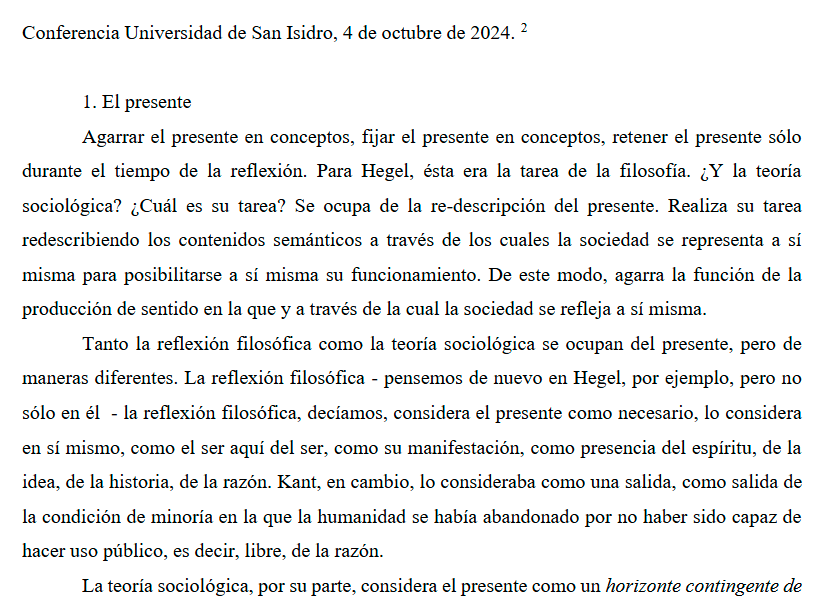EL DISENSO COMO FUENTE Y PUNTO DE FUGA DEL DERECHO
Palabras clave:
Disenso, Derecho agonista, Democracia disensualResumen
La función política e ideológica del derecho se nutre del disenso como 'sentir diferente', que deviene de esta manera una categoría del orden de lo pre-conceptual. El disenso como origen introduce, por estructura, lo indecidible del derecho y de la democracia. Es su fuente y su punto de fuga. La modalidad disensual constituye el cemento de un derecho crítico democrático que determina epocalmente cuáles son los cuerpos excluidos y cuáles no lo son; que legitima hegemonías al mismo tiempo que habilita contra- hegemonías, y da el logos al mismo tiempo que lo silencia. La palabra democracia, tan jaqueada hoy por los autoritarismos, los conformismos, el vaciamiento reflexivo, la automatización del deseo, padece de una sobrecarga conceptual, que la puede conectar tanto con movimientos populares como con estrategias dramáticamente autoritarias. Esto nos refuerza la responsabilidad ética de buscar su última e irrenunciable napa de significado, que desde nuestro punto de vista está dada por el disenso, ese 'sentir diferente' que abona la función política del derecho. Nuestros interrogantes en torno a la categoría del disenso responden a una preocupación creciente por un poder que se ha hecho hegemónico en desmedro y diluyendo su veta resistente. Tematizar el disenso (resistencia, reclamo, protesta) significa devolverle al poder y al derecho el juego agonista indispensable para el desarrollo de su potencia democrática.
Descargas
Referencias
AGAMBEN, G. et al. (2010). Democracia, ¿en qué Estado? Buenos Aires. Prometeo Libros.
Bauman, Zygmunt. (1997). Legisladores e intérpretes. Argentina. Universidad Nacional de Quilmes.
Cárcova, Carlos. (2007). Las Teorías Jurídicas Post Positivistas. Buenos Aires. LexisNexis. Esposito, Roberto. (2012). Communitas. Buenos Aires. Amorrortu editores.
Foucault, Michel. (1996). Genealogía del racismo. Argentina. Caronte Ensayos. Fusaro, Diego. (2024). Pensar diferente. Madrid. .Editorial Trotta.
Habermas, Jurgen. .(1998), Facticidad y validez. Madrid. Editorial Trotta.
Hirschman, Albert (1977). Salida, voz y lealtad. Méjico. Fondo de Cultura Económica. Hobbes, Thomas. (1992). Leviatán. Méjico. Fondo de Cultura Económica.
Ketterer, Hanna y Karina Becker (eds.) (2023). ¿Qué falla en la democracia? Barcelona.
Herder Editorial.
La Boétie, Étienne de (2010). Discurso sobre la servidumbre voluntaria. Madrid. Editorial Tecnos.
Mouffe, Chantal. (2014). Agonística. Buenos Aires. Fondo de Cultura Económica.
Mouffe, Chantal. (2007). En torno a lo político. Buenos Aires. Fondo de Cultura Económica.
Mussil, Robert (2015). El hombre sin atributos. Barcelona. Seix Barral.
Nancy, Jean-luc .(2009). La verdad de la democracia. Buenos Aires. Amorrortu. Rancière, Jacques. (1996). El desacuerdo. Buenos Aires. Ediciones Nueva Visión.
Ruiz, Alicia. (2014). ¨Cuerpo/cuerpos¨. La letra y la ley. Buenos Aires. Infojus, pp. 151- 163.
Tabucchi, Antonio (2005). Sostiene Pereira. Barcelona. Anagrama. Tiburi, Marcia. (2018) ¿Cómo conversar con un fascista? , Méjico. Akal.
Wolfzun, Nora. (2023).¨Un derecho crítico: entre lo impersonal y lo impropio¨. Revista Latinoamericana de Sociología Jurídica. No. 6., pp. 18-42.
Zizek, Slavoj. (2008).¨El espectro de la ideología¨. Ideología. Un mapa de la cuestión.
Buenos Aires. Fondo de Cultura Económica.

Descargas
Publicado
Número
Sección
Cómo citar
Artículos más leídos del mismo autor/a
- Nora Wolfzun, UN DERECHO CRÍTICO, ENTRE LO IMPERSONAL Y LO IMPROPIO , Revista Latinoamericana de Sociología Jurídica: Núm. 6 (4): Número 6 - Septiembre 2023

